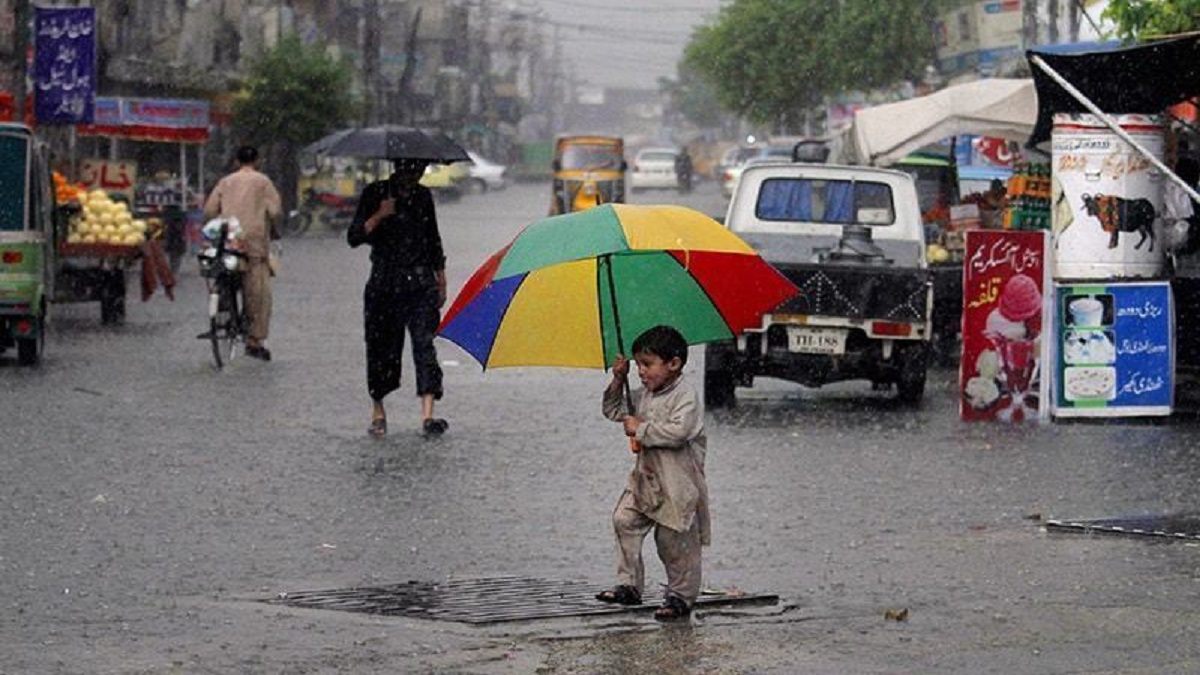According to recent forecasts by the Pakistan Meteorological Department (PMD), the Potohar region, including Rawalpindi and Islamabad, as well as parts of Khyber Pakhtunkhwa, could experience above-average rainfall during the upcoming monsoon season. Consequently, hilly areas could be at risk of flash floods and landslides.
Officials from the PMD, who briefed the National Monsoon Coordination Conference on Wednesday, indicated that this year’s monsoon is expected to coincide with El Niño conditions and a positive Indian Ocean Dipole (IOD). The conference attendees were informed that a positive IOD often leads to increased monsoon rainfall in South Asian nations, including Pakistan.
The National Disaster Management Authority (NDMA) organized the National Monsoon Coordination Conference in anticipation of the monsoon season, aiming to devise strategies to deal with any potential challenges. NDMA Chairman Lt Gen Inam Haider Malik emphasized the importance of learning from past experiences, especially last year’s severe flooding, and highlighted the need for cooperation among all stakeholders.
Attendees agreed on the importance of providing the public, humanitarian organizations, and line departments with actionable advisories and guidelines to prepare for any eventualities. As per the PMD’s weather forecast for July through September, the likelihood of extreme weather events in the summer of 2023 was discussed, including potential riverine floods, flash floods, landslides, and urban flooding. Farmers were advised to prepare accordingly and to plan their tilling activities with these potential risks in mind.
The seasonal temperatures are projected to remain within the normal to above-normal range throughout the country. The PMD officials also discussed the effects of El Niño and a positive IOD, noting that occasional extreme hydro-meteorological events over catchment areas could occur. There could also be instances of urban flooding, hill torrents, and flash floods due to isolated heavy downpours, potentially leading to riverine floods in major rivers.
Read More: Cyclone Biperjoy Alert Prompts Postponement of Exams in Karachi
Further, the PMD cautioned that rising temperatures in upper Khyber Pakhtunkhwa, Gilgit-Baltistan, and Kashmir could hasten snowmelt, resulting in an increased water flow into rivers.
The NDMA chairman urged proactive measures to mitigate disaster impacts and stressed the importance of preparation before disaster strikes. He also called for timely training of responders and a review of stock positions for monsoon contingencies.
Lt Gen Malik directed provincial authorities to collaborate with NGOs and humanitarian organizations to ensure maximum community outreach and resource allocation in line with the meteorological department’s weather projections.
Representatives of the disaster management authorities of Gilgit-Baltistan and Azad Kashmir detailed their public awareness campaigns and mock exercises for monsoon contingencies. The meeting was attended by various national stakeholders, including the chairman of the Indus River Systems Authority (Irsa), representatives of the climate change ministry, emergency services, relevant NGOs, UN bodies, Suparco, National Highway Authority, armed forces, Capital Development Authority, and Islamabad administration.



























